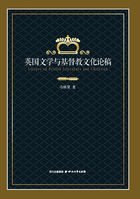ANIMALS are often employed as a vehicle for carrying away or transferring the evil. When a Moor has a headache he will sometimes take a lamb or a goat and beat it till it falls down, believing that the headache will thus be transferred to the animal. In Morocco most wealthy Moors keep a wild boar in their stables, in order that the jinn and evil spirits may be diverted from the horses and enter into the boar. Amongst the Caffres of South Africa, when other remedies have failed, natives sometimes adopt the custom of taking a goat into the presence of a sick man, and confess the sins of the kraal over the animal. Sometimes a few drops of blood from the sick man are allowed to fall on the head of the goat, which is turned out into an uninhabited part of the veldt. The sickness is supposed to be transferred to the animal, and to become lost in the desert. In Arabia, when the plague is raging, the people will sometimes lead a camel through all the quarters of the town in order that the animal may take the pestilence on itself. Then they strangle it in a sacred place and imagine that they have rid themselves of the camel and of the plague at one blow. It is said that when smallpox is raging the savages of Formosa will drive the demon of disease into a sow, then cut off the animal's ears and burn them or it, believing that in this way they rid themselves of the plague.
Amongst the Malagasy the vehicle for carrying away evils is called a faditra. The faditra is anything selected by the sikidy [divining board] for the purpose of taking away any hurtful evils or diseases that might prove injurious to an individual's happiness, peace, or prosperity. The faditra may be either ashes, cut money, a sheep, a pumpkin, or anything else the sikidy may choose to direct. After the particular article is appointed, the priest counts upon it all the evils that may prove injurious to the person for whom it is made, and which he then charges the faditra to take away for ever. If the faditra be ashes, it is blown, to be carried away by the wind. If it be cut money, it is thrown to the bottom of deep water, or where it can never be found. If it be a sheep, it is carried away to a distance on the shoulders of a man, who runs with all his might, mumbling as he goes, as if in the greatest rage against the faditra, for the evils it is bearing away. If it be a pumpkin, it is carried on the shoulders to a little distance, and there dashed upon the ground with every appearance of fury and indignation. A Malagasy was informed by a diviner that he was doomed to a bloody death, but that possibly he might avert his fate by performing a certain rite. Carrying a small vessel full of blood upon his head, he was to mount upon the back of a bullock; while thus mounted, he was to spill the blood upon the bullock's head, and then send the animal away into the wilderness, whence it might never return.
The Bataks of Sumatra have a ceremony which they call making the curse to fly away. When a woman is childless, a sacrifice is offered to the gods of three grasshoppers, representing a head of cattle, a buffalo, and a horse.
Then a swallow is set free, with a prayer that the curse may fall upon the bird and fly away with it. The entrance into a house of an animal which does not generally seek to share the abode of man is regarded by the Malays as ominous of misfortune. If a wild bird flies into a house, it must be carefully caught and smeared with oil, and must then be released in the open air, a formula being recited in which it is bidden to fly away with all the ill-luck and misfortunes of the occupier. In antiquity Greek women seem to have done the same with swallows which they caught in the house: they poured oil on them and let them fly away, apparently for the purpose of removing ill-luck from the household. The Huzuls of the Carpathians imagine that they can transfer freckles to the first swallow they see in spring by washing their face in flowing water and saying, Swallow, swallow, take my freckles, and give me rosy cheeks.
Among the Badagas of the Neilgherry Hills in Southern India, when a death has taken place, the sins of the deceased are laid upon a buffalo calf. For this purpose the people gather round the corpse and carry it outside of the village. There an elder of the tribe, standing at the head of the corpse, recites or chants a long list of sins such as any Badaga may commit, and the people repeat the last word of each line after him. The confession of sins is thrice repeated. By a conventional mode of expression, the sum total of sins a man may do is said to be thirteen hundred. Admitting that the deceased has committed them all, the performer cries aloud, 'Stay not their flight to God's pure feet.' As he closes, the whole assembly chants aloud 'Stay not their flight.' Again the performer enters into details, and cries, 'He killed the crawling snake. It is a sin.' In a moment the last word is caught up, and all the people cry 'It is a sin.' As they shout, the performer lays his hand upon the calf. The sin is transferred to the calf. Thus the whole catalogue is gone through in this impressive way. But this is not enough. As the last shout 'Let all be well' dies away, the performer gives place to another, and again confession is made, and all the people shout 'It is a sin.' A third time it is done. Then, still in solemn silence, the calf is let loose. Like the Jewish scapegoat, it may never be used for secular work. At a Badaga funeral witnessed by the Rev. A. C. Clayton the buffalo calf was led thrice round the bier, and the dead man's hand was laid on its head. By this act, the calf was supposed to receive all the sins of the deceased. It was then driven away to a great distance, that it might contaminate no one, and it was said that it would never be sold, but looked on as a dedicated sacred animal. The idea of this ceremony is, that the sins of the deceased enter the calf, or that the task of his absolution is laid on it. They say that the calf very soon disappears, and that it is never heard of.
3. The Transference to Men















